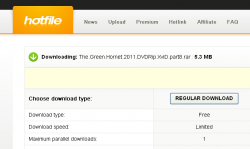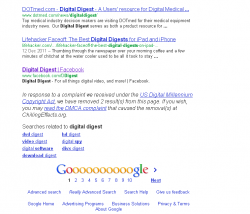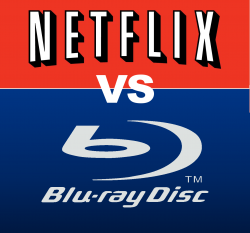I know what the date is, and no, I’m not going do something for it. The expectation is always too high, and I can never live up to it. Besides, all the interesting ones have been done, and the rest, I’m fairly sure, constitute libel. So nobody is making a fool out of anyone else for this year, not Digital Digest anyway.
Or maybe I’m just luring you into a false sense of security …
But before we get into any April based tomfoolery, which may or may not happen, let’s get through the news roundup first.
But before that even, a linky link to Digital Digest’s “new” Facebook page, or rather, the same page with the new Timeline thingy on it that has been forced upon all of us by all knowing Facebook. The timeline feature is definitely quite interesting, and if I have the time, I might just start adding a few of Digital Digest’s milestones into the timeline (having only added in one entry for the launch of the website back in 1999, so far). I’ve never been a big fan of Facebook’s user interface, but I must say this timeline thing does look good.

First, a follow-up to a story from last week regarding RapidShare. I mentioned last week, in a brief sentence, that RapidShare may soon be forced to filter all user uploads due to a recent court decision. Apparently, this is not actually the case at all.
What had happened is that the groups suing RapidShare in Germany, a collection of book and music rights groups, had released a statement celebrating their “victory”, despite the court having not yet released the full written verdict. But now that the written verdict has been released, it paints a rather different picture, one that RapidShare says gives them an important victory as well.
Now I’m aware of the spin that is probably being produced by both sides, but it’s clear the the verdict wasn’t the clear victory the rights holders had hoped for. What the court did, at least according to RapidShare, was to recognise RapidShare’s overall business model as a legal one, while at the same time asking RapidShare to do more on the issues of copyright infringement. The court says that RapidShare needs to actively seek out links to infringing content (hosted on its servers) by visiting the common haunts for these types of things – popular forums, blogs, websites and such, and remove said content once it is aware of the likely legal status of the upload. This is opposed to scanning each and every download, without knowing anything about the legality of the download (which, according to the European Court of Justice, may constitute a violation of privacy rights). But RapidShare says they’re already doing exactly this, and so for them, the court’s verdict won’t actually affect them too much. Despite this, RapidShare still plan to appeal the decision on the grounds that while they think these measures are a reasonable part of their business strategy, they don’t believe the court has the right to order websites to comply.

Hotfile will soon scan all uploads for pirated content, but it may be too little, and too late, as far as the MPAA is concerned
Another file sharing host is taking a different approach to anti-piracy, although it might be too late, if not too little. A press release alerted me to the fact that Hotfile will start using Vobile’s vCloud9 scanning solution to scan uploads for infringing content. Apparently, the technology employs a database of known file “fingerprints”, and can even scan compressed archives to see if the upload contains infringing content. This comes after the company recently changed its affiliate program to no longer pay based on download volume (ie. heavily favoured towards pirated downloads), but instead, when uploads result in the downloader signing up to a premium account, and uploaders get a commission on that. With the MPAA still insistent on a summary judgement against Hotfile in its lawsuit, this may all be too late, and it’s probably too little as well when it comes to what the MPAA really wants (which is to shut down Hotfile and make an example out of them, probably).
For those that take an interest in things like DVD and Blu-ray copy protection, as well as region coding and stuff, you should be well aware that Fox are one of the “hard-asses” when it comes to these sort of things. Being pretty much the only studio that consistently makes its US Blu-rays region locked (even Sony has seen the light, and forgoes region control for catalogue releases), and having early on declared their support for Blu-ray based solely on the format’s preference for tougher copy protection methods (all of which has since been cracked, of course), you’d expect that Fox, and its parent company, to be the last one to have a copyright scandal. Which was why it was very ironical to see News Corp embroiled in its own piracy scandal this week, as claims were made by BBC’s Panorama program, and also separately by an Australian newspaper, that a (former) subsidiary of News Corp may have helped to fuel piracy of competitor’s services in order to gain an unfair market advantage. Apparently, the subsidiary, NDS, helped to crack rival pay TV networks’ encryption cards, and then helped to ensure the cracked codes got into the hands of people who sell pirated services. News Corp, and NDS, have both denied these allegations, but both the BBC and the Australian paper, the Australian Financial Review, say they have gathered a lot of evidence on this (with the AFR saying that this investigation has been four years in the making). With the Australian government already considering launching its own official investigation into this incident, this could be a story to watch out for.
And finally for this week’s copyright section, I have a story that hits pretty close to home. Actually, it hits directly at home like a guided missile, and for the fun of it, takes out a few neighbouring properties too. This week, the home page of Digital Digest, and two PowerDVD related pages, were removed from the Google search results due to a DMCA take-down request filed by Guardlex.com. You can read the full story here, and the DMCA notice here on Chilling Effects if/when it’s ever made available, but the gist of it is that Guardlex, probably working on behalf of Cyberlink (the makers of PowerDVD) to take down results related to pirated downloads of PowerDVD, took down our pages as part of a DMCA notice that included thousands of other URLs. The thousands of URLs also included well known legitimate websites such as Cnet’s download.com, Afterdawn, Softonic.com and other clearly legal URLs, including a dozen URLs from Cyberlink’s own website (including their home page!).

The Digital Digest home page have been removed from the Google results due to the DMCA complaint that does not seem to be valid at all
The whole DMCA removal process with Google goes something like this. When Google receives a DMCA notice, and if the notice has all the proper documentations, they immediately remove the URL from their search results (and you’ll see the “In response to a complaint we received under the US Digital Millennium Copyright Act, we have removed …“ message at the bottom of any search results page that has removed results – do a search for “PowerDVD” right now, and you’ll see 3 such messages, meaning 3 URLs were removed). Some time later, could be days or weeks, Google informs the owner of the removed page(s), assuming they have a webmaster central account with Google, of the take-down. And a few days after that, Google may send the website owner the actual DMCA notice. You then have the option to file a counter-notification, and if Google does not receive any further notice on this matter within 14 working days, the URLs get reinstated back into Google’s index.
So even in the case of a mistaken identity, as was the case here I believe, it may take weeks to get it all sorted, with financial and a reputation loss that cannot be avoided. Under the DMCA, if I’m the victim of a mistaken take-down, I can sue for damages. The problem is that this is rarely worth the time and trouble when you factor in legal fees, and so DMCA agents can get away with these innocent and sometimes not so innocent mistakes, most of the time. This is probably why 57% of all DMCA claims made to Google are by companies out to “get” their competitors, and that 37% aren’t even valid claims. It’s clear that the DMCA is currently being abused by rights holders, and that was always going to happen if you have the level of bias present in these sets of laws.
And so it scares me very much to think that rights holders still say the DMCA is not biased enough, and they want something like SOPA or PIPA to make it even easier to take down entire websites, just for a few bad pages that may not even be bad. Sure, the major backers of the bills will say it’s only for “foreign rogue” websites, and that they will promise not to abuse it, but can you really trust them? And even if you can, can you trust all the people and companies that will have access to SOPA/PIPA, to not abuse it in the same way they’re currently abusing the DMCA?

A couple of WNR’s ago, for an issue where I ran out of stuff to write, I enthused about how great streaming video-on-demand was, and how it look destined to be the future of home video.
It seems that the future is going to get here sooner than I though. The latest research via IHS Screen Digest (no relations) says that streaming has just overtaken discs as *the* way to watch movies and TV shows at home, having increased by about 140% in the last year alone. 3.4 billion viewings were made on streaming media, compared to only 2.4 billion on DVDs and Blu-ray, for 2011.
What was more interesting is that, on average, people only paid 51 cents for each streaming title, while they paid $4.72 for discs. The cost of an Internet connection and bandwidth is probably not counted for streaming, which will increase the cost, but I think the main idea is that people watch more on streaming, especially unlimited streaming offers, because they have access to more content for a far lower price than compared to “owning” content.

Is Netflix going to doom Blu-ray? Maybe not now, but you can't dent that VOD is the best way to access and maintain a huge library of titles
Of course, this story has led to people saying the end of nigh for Blu-ray, but until true Blu-ray quality 1080p can be streamed to most people’s homes, the reality is that Blu-ray is still very much needed.
But for those that don’t really care that much about seeing a few extra pixels or “owning” content, or for content that can’t benefit from the full bandwidth HD treatment, then $7.99 per month for Netflix may be a much better deal than having a collection of hundreds or even thousands of discs (just making available the shelving space is a pain, trust me).
But for me, having something physical to hold on to that won’t refuse to play simply because my Internet connection is down, is still worth the extra $4.21.
And with that, we come to the end of another WNR. See you next week.

